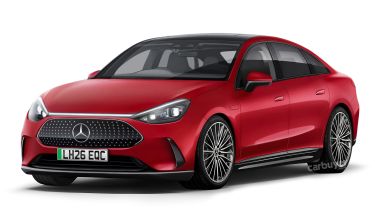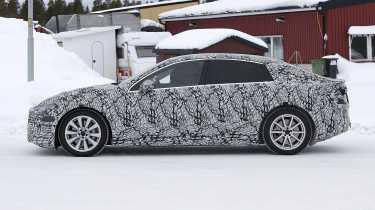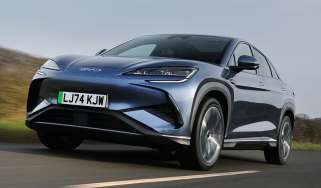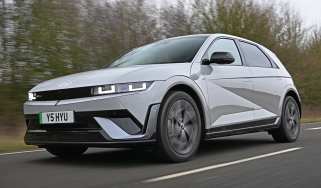Next-gen Mercedes C-Class set to go electric-only
We preview the upcoming Mercedes C-Class, which is due to go fully-electric for 2026
- All-new generation of Mercedes C-Class
- Fully-electric powertrain
- Coming in 2026
Development of the next generation of Mercedes C-Class is already well underway, and it’s set to ditch petrol and diesel power for good. Predicted to arrive in 2026, the all-new compact executive car is expected to be electric-only for the first time in its 31-year history, adopting similar tech and styling to the German brand’s existing EV lineup, including the EQE and EQS saloons.
What do we know so far about the new Mercedes C-Class?
Recent spy pictures have given us our first glimpse of the new Mercedes C-Class undergoing testing on public roads, which we’ve used to produce our exclusive preview image. Despite the heavy camouflage, we can spot the smooth bodylines and coupe-esque roofline that we’ve come to expect from Mercedes’ EQ lineup, although the bonnet appears to be longer than that of its sister cars.
We expect the production-ready C-Class to lean heavily on the styling of the Mercedes CLA Concept revealed in 2023. The large black ‘mask’ present on the front end of every Mercedes EQ car will be swapped for a new design language, consisting of a separate black ‘grille’ graphic and a horizontal light-bar connecting the headlights. Aerodynamic design touches such as the flush door handles and front air ducts will be present, much like those on the EQE and EQS. Overall, it’s a similar silhouette to cars like the new Audi A5 or BMW i4, but only the latter will be a direct competitor to the new C-Class with its all-electric powertrain.
Speaking of which, the C-Class will utilise the same EV-only platform that underpins the EQE saloon instead of a new, bespoke setup. Specific tech specs haven’t been confirmed as of yet, but we expect the C-Class to debut with the usual floor-mounted battery pack and standard-fit single motor layout, while dual-motor models will be available with more power. Due to the smaller size of the C-Class, we probably won’t see a battery pack as large as the 120kW unit found in the EQS, but a range of over 400 miles should be expected if it’s to keep up with the latest executive EVs, such as the Polestar 2 and Volkswagen ID.7.
Will the Mercedes C-Class get a petrol or diesel engine?
While the all-new generation of Mercedes C-Class is set to go fully-electric, the whole story isn’t quite so straightforward. A softening EV market in Europe has prompted Mercedes to rethink its model strategy moving forward, including plans for the current and next-gen C-Class.
The upcoming C-Class was originally intended to receive an all-new electric platform, but the EQE platform was adopted instead in order to free up resources for developing future combustion engines. Mercedes said, “the pace of transformation [to a fully-electric model lineup] is determined by market conditions and the needs of our customers. We will build the perfect Mercedes-Benz for every customer. Into the 2030s, we can flexibly offer vehicles with both a fully electric drivetrain, or an electrified hi-tech combustion engine.”
For car buyers, that means we can expect the current Mercedes C-Class, with its range of petrol, diesel and hybrid engines, to be sold alongside the all-new electric model in the future, giving customers a full complement of powertrain options to choose from. Whether the existing C-Class will receive a hefty facelift for visual continuity remains to be seen, but it looks as if the all-new electric model won’t be replacing the combustion-powered model entirely – at least for now.
Read about the best saloon cars on sale today to see what Mercedes will be competing against…
Recommended

New Subaru Solterra brings more range, power and polish
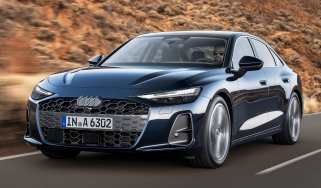
The new Audi A6 saloon has finally landed, and costs from just over £50k
Most Popular

New Smart #5 Brabus is a 637bhp far cry from the brand’s city car past

Best car leasing deals 2025: this week’s top PCH offers
Tips & advice

Car dashboard warning lights: what does each symbol mean?

Electric car charging stations: public networks, charger types, apps and maps

